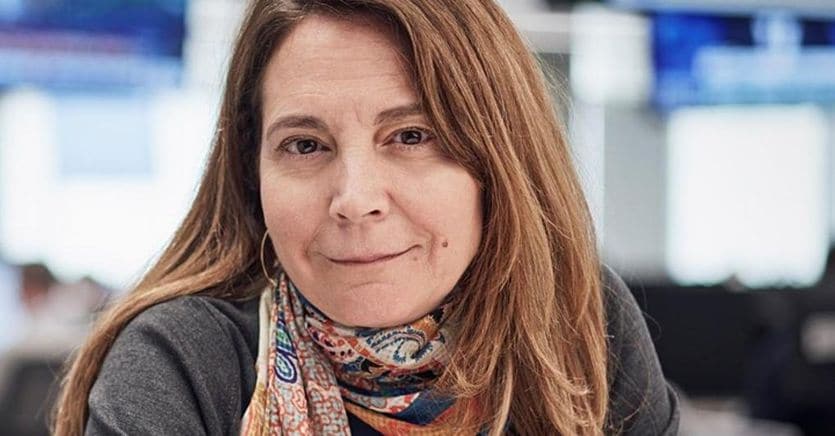One morning in late October 2019, the dean of British journalism Lionel Barber, then powerful director of the Financial Times, who has been at the helm of the world‘s most famous and prestigious business newspaper for 15 years, lands in Tokyo. Has an appointment with Kita-San, the great leader of the Nikkei, the Japanese conglomerate that owns Tokyo Stock Exchange who bought the historic British economic newspaper four years earlier, in 2015. Barber is about to expire: he should have abandoned already at the ten-year milestone, an unwritten rule for a director of the salmon newspaper, but it was precisely the new Japanese shareholders who asked him to stay . In that autumn the time has come to choose the heir: Barber makes a name that displaces everyone. His heir will be a woman, Roula Khalaf. Today three women are at the top of the most important information bodies in the world: Ft, the agency Reuters and the weekly The Economist.
From Lebanon to Friday Street
Roula Khalaf, former correspondent from the Middle East, had been Barber’s deputy for some years, but the choice is still a revolutionary fact: Khalaf is the first woman, not even English but of Lebanese origin, to become Editor-in-Chief of FT since it was founded in 1888. Barber has flown to Japan, on the 14th intercontinental voyage he noted in the memoir entitled “The Powerful and the Damned”, to communicate the choice to the editor and invite him to make the announcement to the editorial staff, which will cause a lot of confusion, in person in London. Khalaf’s appointment was an earthquake in the plastered world of Fleet Street, the British press, also because it did not have a financial and market background, but came from foreign policy. From the Middle East to the top job in the futuristic building of Friday Street, the new headquarters of the newspaper in London.
Loading…
A new way to journalism
But above all, with his choice, Barber paved the way for women to enter the upper echelons of the British media. Today, there are at least three female directors at the helm of prestigious international newspapers. Two years later, on April 13 another Sancta Sanctorum was opened. The Reuters agency, one of the main sources of information in the world, born in London at the end of the 19th century, has chosen Alessandra Galloni as boss: it is the first time in the 170-year history of. The 47-year-old Galloni, born in Rome, is also the first Italian to reach the top of international journalism: she replaces Stephen J. Adler, who will retire this month after leading the editorial team for the past decade. Adler leaves the agency after winning hundreds of journalism awards, including seven Pulitzer Prizes. Galloni, who speaks 4 languages, joined Reuters in 2013 after working for 13 years at Wall Street Journal, specializing in economics and finance and working as a correspondent from London, Paris and Rome. He gained fame following the crack of Parmalat: his articles on the Collecchio crack also earned him prizes.
It all started at the Economist (degli Agnelli)
The purists of Quote Rosa, however, recall that the first “pink” revolution in the world of the British press was launched by the weekly Economist owned by the Agnelli family (the holding Exor controls 43%): in 2015 on the helm station, as 17th director, a woman arrived, Zanny Beddoes. Born as Suzan Elisabeth, but for all Zanny, she is the daughter of a former British soldier and a German woman. Graduated in philosophy from St Hilda College in Oxford, and with a master’s degree from Harvard, Beddoes was hired at The Economist in 1994, after two years at the IMF, the International Monetary Fund. After ten years she rose to the most important role. All three “Ladies of Journalism” are, by chance, in financial information: the world of economic journalism in Great Britain speaks only to women. And, another coincidence, they are all native or expat: daughters of meltin pot of London, now challenged by Brexit.
